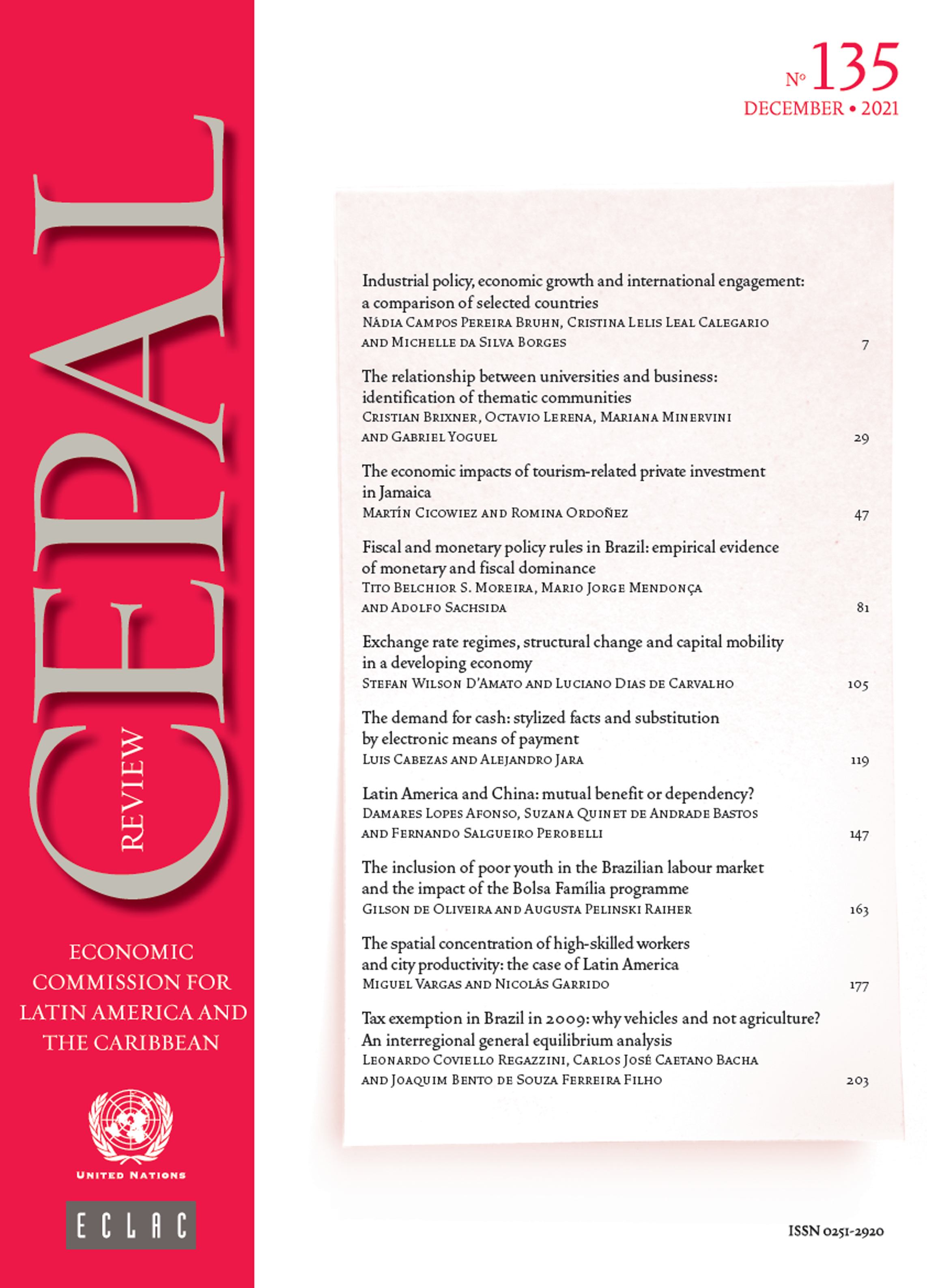-
Tax exemption in Brazil in 2009: why vehicles and not agriculture? An interregional general equilibrium analysis
- Source: CEPAL Review, Volume 2021, Issue 135, May 2022, p. 203 - 222
- Spanish
-
- 31 May 2022
Abstract
Tax exemption has been used systematically in Brazil to stimulate the economy. In 2009, in an attempt to stem the economic slowdown, the Brazilian government adopted a countercyclical economic policy that included lowering taxes on vehicle prices. Why was this sector chosen rather than another? This article seeks to analyse the effects of this policy on the Brazilian economy in 2009, using as a counterfactual a tax exemption policy targeted on the agriculture sector. Based on an interregional computable general equilibrium model (TERM-BR), the two policies are simulated and compared. The results show that lowering taxes on agricultural products can be considered superior to an equivalent tax reduction for vehicles, in terms of the effects on employment, income, household consumption, GDP and, especially, the distribution of economic activity across the regions of Brazil and the income distribution.





